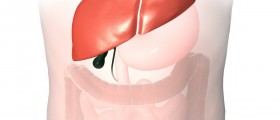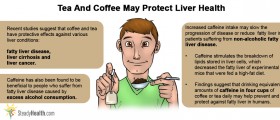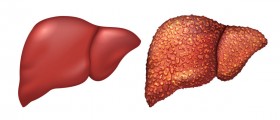Liver is one of the vital organs in the human body. If its function is impaired, it leads to significant health issues. The liver does have the ability to repair itself from the damage caused by various factors, but sometimes the damage is so prolonged and extensive that the liver cannot repair itself, resulting in liver failure. Liver failure is usually associated with alcohol abuse, but drug abuse is also a significant damaging factor for this internal organ.

The importance of liver
The liver is a large glandular organ located on the right side of the abdomen, below the diaphragm. It is brownish-red in color and it is divided into four unequal sections. Liver tissue is made of thousands of lobules, which contain hepatic cells.
The liver has more than one important function. It produces substances that participate in the metabolism and break down fat and convert glucose to glycogen. It produces urea, which is the main constituent of the urine, and also produces some amino acids, which serve as building blocks for protein. The liver also stores important nutrients, such as vitamins A, D and B12, and maintains normal glucose levels in blood. It also produces the large portion of cholesterol produced by the body. Of course, as almost everyone knows, the liver filters harmful substances from the blood, such as alcohol.
The liver can be affected by several diseases, the most common being hepatitis, cirrhosis, Wilson’s disease and liver cancer.
Certain substances can alter the function of the liver, potentially leading to organ failure. Alcohol is the best-known one among those substances, but the negative effects of drugs on the liver are not to be neglected either.
Drug abuse and liver
Some forms of drug addiction have particularly negative effect on the liver. Injected drugs and inhalants are particularly known for this effect. Injecting drugs, such as heroin, is largely associated with hepatitis C, one of the diseases that affect the liver. This is an infectious liver disease caused by the hepatitis C virus. People who frequently inject drugs often fail to use fresh needles and syringes, which increases the chance of contracting the hepatitis C virus, the same way as it increases the chance of contracting HIV.
Inhalants, on the other hand, especially propane, butane and chemicals in aerosols, affect directly the liver cells, causing their degeneration and cell death. When large portions of the liver are affected by it, it may lead to liver failure, as the organ fails to repair itself.

















Your thoughts on this
Loading...